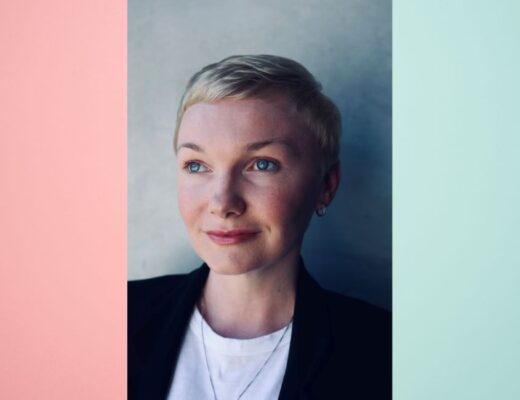A former student of Michael Haneke’s, now operating under the Ulrich Seidl Filmproduktion banner, Peter Brunner seems primed (and positioned) to be Austria’s next internationally recognized auteur, with a style and tonal proclivity comparable to those of his aforementioned mentor’s. Though his previous film, 2018’s English-language To the Night, failed to catch on broadly despite its trendy contemporary surrealist style and Heaven Knows What-parallel cast, its dour provocations seemed too much for the audiences that saw it at Czech Republic’s KVIFF that year. Now, Brunner’s latest feature Luzifer has made its debut at the 2021 Locarno Film Festival, a film no less grim-faced than that last one, paired with a visual sensibility that almost, maybe justifies its confrontationally bleak material.
Pitching itself in the festival program as “Inspired by the true story of an exorcism,” it becomes clear rather early on that whatever source text Brunner is drawing from has been reshaped and expanded considerably in the adaptation process (interviews suggest it was stumbled upon while researching newspaper clippings for a previous project). Ultimately building to this advertised “exorcism,” Luzifer doesn’t rush to its gnarly, violent conclusion, but steadily strides towards it, giving a whole sense of the insular, extreme lives of its lead characters. Starring the very in-demand Franz Rogowski (borrowed from Haneke’s Happy End) and Susanne Jensen, a nonprofessional actor whose life experience bears a strong resemblance to that of her character’s (Brunner supposedly prefers to cast in this manner). The pair play son and mother, living in a chosen exile from society, out somewhere in the Alpines. Rogowski’s Johannes is mentally handicapped and unable to communicate in language recognizable to anyone outside of himself, his pet eagle, and his mother, Marie, a former addict who has resigned herself to a hardcore evangelical lifestyle in the wilderness with her son. But despite their best efforts, modernity finds its way to these two in the form of land developers looking to transform the area into something tourist-friendly, flooding the woods with aggressive drones that throw into turmoil both the natural ecosystem and that which exists within this particularly intense parent/child dynamic.
Not really bothering to play coy about the film’s grisly conclusion, the press material for Luzifer has Brunner casually describing the matricide that occurs in the film’s closing minutes (the result of the aforementioned “exorcism”), with an intent toward shifting the audience’s attention to the narrative and character path taken to this classically tragic moment. In this way, Brunner attempts to offer Luzifer as both gritty character study/psych profile and broad, occult-tinged allegory about spirituality and nature, with the film not totally convincing as either, its scope unable to contain both halves. Jensen and Rogowski give these massive, faux-naturalistic method performances (worked on for at least a year while living on location) that help to legitimize the film’s belief in itself as an accurate depiction of human psyche, though many will cringe at the latter’s unabashed take on this cognitively disabled character, not so far off from Adrien Brody in M. Night Shyamalan’s The Village (thematic similarities only help to underline the comparison). Peter Flinckenberg’s cinematography accounts for Luzifer’s strongest feature, consistently, brilliantly lit and composed around the landscapes of the actor’s bodies and the Alpine forest with a knowing ease. It’s impressive work that, along with Jensen’s performance in particular, sometimes makes the dubious premise feel more significant than it is; it can at least be said that Luzifer offers complex images where it lacks similarly substantive philosophy.
Published as part of Locarno Film Festival 2021 — Dispatch 2.







